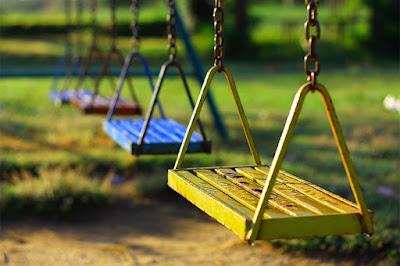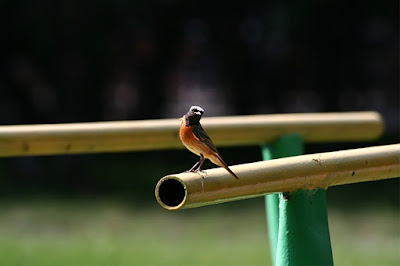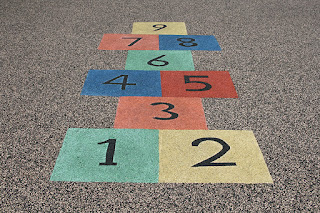It got my attention for two reasons:
- The word play. Although I have an ambivalent relationship with astrology, its mythical archetypes are rich sources for exploring depth psychology (pant! pant! something I love) while the cheesy cookie-cutter personality analyses and forecasts make me cringe (or is it whinge, lol!) And … yet … I do know my North Node is in Leo which at the most basic level suggests that for me, learning to play could be a helpful thing … hehe.
- The word limits. In my twenties I studied the I Ching. My introduction to Carol Anthony’s Guide to the I Ching was a huge, door-opening into the cosmos experience for me, probably the seed which planted the spiritual arc upon which I’ve journeyed for the past three decades. Why? Amidst all its intricacies, its bedrock was the concept of our internal world and the power of spending time there. Now when I went to the most reputable English translation of the I Ching or Book of Changes by Wilhem/Baynes, I found a mix of concepts which left me quite ambivalent and eventually led me to discard the book. Overlayed—shellacked—with Confucianism (which I don’t like because it promotes misogyny and rigidly hierarchical social structures which are antithetical to the whole concept of diversity, multiplicity, and variety inherent in life) there are liberal sprinklings of Taoism in its birth (which I love) and much poetry in: The Judgements, Images, and Lines, of the hexagrams. (If you’re unfamiliar with the I Ching it’s a collection of 64 hexagrams, images of 6 broken and unbroken lines to which text has been appended; the hexagrams purportedly represent the varying pathways (sequences) of change upon which Life is apt to meander.) Hexagram 61 is: Limitation, its Judgement: Limitation. Success. Galling Limitation must not be persevered in. Those 7 words capture the treachery of both indulgence and tyranny. In his book, Bogost makes a playful and much more wordy pitch for how limits are a key ingredient to success. But the overall theme of Play Anything is really about: Engaging with the FINITE, i.e. the material world as we see it and experience it. A theme very much appreciated by me as one who’s sick of our species attempts to discount and/or minimize the miracle around us as an “illusion” or our commitment to focus on its worst aspects and soothe our perspective with a future “afterlife”.
If attitude/perspective is everything …
Then Bogost’s first chapter, Everywhere, Playgrounds, is a great start in upending the apple cart …
He begins by telling a story of rushing through the mall with his daughter. He describes a game she played along the way with the lines created by the floor tiling. Her win: “She made the most of a mundane situation. She turned misery into fun.”
“…children are constantly compromising, constantly adjusting to an environment that is clearly not theirs, not yet. That’s wisdom, not innocence … we are fools to think we can control the universe. Children are right to allow the humility of their smallness to rule the day.”
“… misery gives way to fun when you take an object, event, situation, or scenario that wasn’t designed for you, that isn’t invested in you, that isn’t concerned in the slightest for your experience of it, and then treat it as if it were … this is what play means. Play isn’t doing what we want, but doing what we can with the materials we find along the way. And fun isn’t the experience of pleasure, but the outcome of tinkering with a small part of the world in a surprising way.”
“… play invites and even requires greater attention, generosity, respect, and investment than its supposedly more serious alternatives do.”
Then Bogost pounds on The Boredom … of daily life, of routine, of all the things we’ve done and seen before. Refreshingly, he transforms boredom to the pointer where we can play … be more attentive, more involved, and more surprised by novelty: novel insights, novel experiences, novel emotions. .. “Joy and pleasure live beyond boredom. Under it, not before nor atop it … once the familiarity of something ordinary is finally, totally, utterly spent, then the novelty of facing it anew can finally start.”
Next he takes interesting and thoughtful swipes at the currently trendy Mindfulness:
“Mindfulness is the practice of accepting our own thought and feelings, but what good is it if we accept only ourselves? We need a means to accept other things. A worldfulness to complement—or even replace—the trend of mindfulness.”
“Instead of taking things in stride, instead of transforming them from insufferable to agreeable, our default approach tends toward frustration, overwhelm, anger, and disgust. Rather than accepting the invitation to play, we reject the call as insufficiently compatible with our predetermined needs and wishes.”
Then he confronts the idea set forth by the writer David Foster Wallace that a way to cope with boredom, routine, tedium of adult life is to project “worst-case-scenarios” on all those you encounter to help you shift from a mental self-centeredness to “an equally soul-destroying, utterly boundless hypothetical empathy” … thus retreating “further into the self” because after all, we’re still bound up in our narrative, and what we tell ourselves. “Wallace’s standard—assuming everyone has ‘harder, more tedious or painful lives’—goes … beyond … inventing meaning, our burdened skulls apparently must invoke the most drastic situation in order to subordinate our private feelings to the circumstances we encounter. A rat-race of worst-case scenarios.
It’s insane to think we’d have to make up fake stories when the world is so replete with real stuff waiting for us to notice it—stuff like rectilinear shopping-mall floor tiles, Gibson Les Paul studio guitars, the knobby stem-necks of tangelos, cans of Pringles machine-formed potato chips, the formal constraints of a tweet or a sonnet … To treat things with respect and intrigue, we don’t need to understand the motivations and inner lives—whatever know the inner life of a tangelo or floor tile would mean. We just need to pay enough attention to discover what they do and how they work—to discover what they obviously and truly are—and then to make use of them in gratifyingly novel ways …
The great tragedy of Wallace’s life—a lifelong sufferer of depression, he committed suicide at age forty-six—isn’t only that he killed himself: it was also that he was unable to invent tolerable, lasting mode of living during the years he eked out of the universe, a mode of living that truly allowed the selfish mind to live amidst the great outdoors.”
Interesting, yeah?
Bogost’s attacks on irony are equally fruitful.
“Irony keeps reality at a distance. It has become our primary method for combating the external world’s incompatibility with our own desires. Today’s irony uses increasingly desperate efforts to hold everything in between welcome embrace and sneering mockery. Irony is the great affliction of our age, worthy of it’s own disorder.”
“Irony is the risk management strategy that accompanies selfishness, whether in commercial form as materialism or in spiritual form as mindfulness. By holding everything at a distance, we trap ourselves in our imperfect minds. … To pretend that the world only exists in one’s head is a madness condemned to reproduce itself forever. The error mistakes the big, weird, world outside our heads for a world built to be housed inside that head, inside our comparatively tiny minds … the mania of selfish irony: the world can never fully satisfy me, so I will hold it at arm’s length forever. Wouldn’t it be easier and more productive to work with the objects, people, and situations we encounter? To use, understand, and appreciate them for what they are rather than how they make us feel about ourselves?”
“Irony is the opposite of playground. Rather than embracing, creating, or otherwise accepting the ultimate existential preposterousness of the world and working with it nevertheless, irony takes the first step—drawing the boundary, encircling the materials with which one might then produce novel experience—and then it stops … with a chuckle and a sneer.”
How to play:
“First, pay close, foolish, even absurd attention to things. Then allow their structure, form, and nature to set the limits for the experiences you derive from them. By refusing to ask what could be different, and instead allowing what is present to guide us, we create a new space. A magic circle, a circumscribed, imaginary playground in which the limitation of the things we encounter—of anything we encounter—can produce meaningful experiences.”
“Our world is jam-packed full of splendor and mystery, most of which we never notice as we ply the demands and dissatisfactions of our selfish lives. And even when we find mechanisms for relief—Buddhist mindfulness or libertarian objectivism, sermonic asceticism or unbridled consumerism—they turn our attention inward rather than outward. They tell us stories about the bodies and minds we wish we occupied rather than offering us tactics to live amidst the world as it really is. Playgrounds aren’t things we create so much as structures we discover. They are particular configurations of materials that otherwise go unnoticed, unseen, unloved, and unappreciated. They’re scattered everywhere, stacked, overlapping, exerting their machinations without us, but available for our address and manipulation, if we draw a magic circle around their parts and render them real.”
Wow. Contemplate that!
In closing, I’ll leave you with a few more choice quotes from Play Anything:
“What if we have so little fun not because the world is so unpleasurable, but because we’ve gotten fun so wrong?”
What if “… real fun isn’t in you; it’s in the world. Or better: it’s in the confluence of you-and-the-world that a playground helps you create and see.”
Can/Could “… you accept that meaning can come from outside of you rather than from within. Perhaps even that it must.”
Consider “Physical therapy means better connecting to the world outside ourselves …” and that, perhaps, the ability to “incorporate external things into internal experience” is the key to evolution and consciousness.
Personally, I believe we’re here to change. If “The things to which we attend and the way we do so change us”, what does that say about the things we choose?
In conclusion, what if “Fun isn’t a distraction or an escape from the world, but an ever deeper and more committed engagement with it.”
All quotes are from Play Anything: The Pleasure of Limits, the Uses of Boredom, & the Secret of Games by Ian Bogost.











